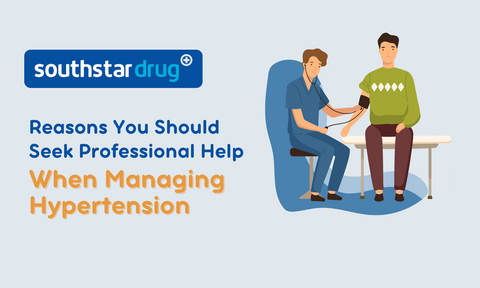
Hypertension, commonly known as high blood pressure, silently poses a significant health risk to millions worldwide. While lifestyle adjustments play a vital role, seeking professional medical advice is indispensable in effective hypertension management. In this article, we'll explore the crucial reasons why patients should always consult a doctor.
Why Consult a Doctor for Hypertension Management?
1. Precision in Diagnosis:
Accurate diagnosis is the cornerstone of effective hypertension management. Seeking a doctor's guidance ensures comprehensive blood pressure monitoring and diagnostic tests, leading to precise insights into your condition. Reliable sources such as the American Heart Association (AHA) emphasize the importance of accurate diagnosis.
2. Tailored Treatment Plans:
Hypertension management isn't one-size-fits-all. Consulting a doctor enables the creation of personalized treatment plans. Lifestyle modifications are crucial, but when medications are required, a doctor can guide you through the options in medications like Telmisartan.
3. Expert Medication Management:
When medication becomes a part of the treatment plan, professional supervision is paramount. Sources like the Centers for Disease Control and Prevention (CDC) stress the importance of medication management. Telmisartan, a reputable angiotensin II receptor blocker, is known for its efficacy and may be included in the hypertension management of a patient.
In the journey to optimal blood pressure, professional guidance is non-negotiable. Accurate diagnosis, personalized treatment plans, and the incorporation of medications like Telmisartan, backed by credible sources, pave the way to effective hypertension management. Your health is your priority – consult with your doctor for a tailored approach to safeguarding your well-being.
Sources:
American Heart Association (AHA): heart.org
Centers for Disease Control and Prevention (CDC): cdc.gov
National Institutes of Health (NIH): nih.gov
Journal of the American College of Cardiology (JACC): onlinejacc.org
European Society of Cardiology (ESC): escardio.org
PubMed: pubmed.ncbi.nlm.nih.gov












